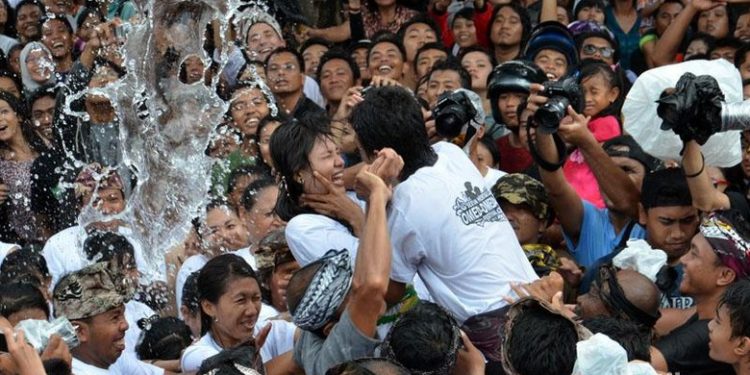Although the ongoing COVID-19 pandemic, the annual “kissing ritual” of Banjar Kaja in Sesetan, Denpasar is set to go ahead.
Also known as Omed-omedan, the ritual though it will be limited to just three couples this time around. Three couples will take part in the procession, three men and three women who have been selected.
The tradition is usually held on the day after Nyepi, or the Day of Silence, which falls on March 14 this year.
History of Omed-omedan
Omed-omedan means “pull-pull” in Balinese and is meant to signify the push and pull of positive and negative elements in the world.
The tradition is believed to have been around for at least a century, though some suggest it has been around since the 17th century.
In modern times, it is considered a part of the Hindu New Year celebrations, and the main participants are limited to the youths of Banjar Kaja.
The ritual involves the men and women engaging in a kissing procession, accompanied by other villagers pouring buckets of water over them.
During the pandemic, the event will be closed to the public, adding that even Banjar Kaja residents are expected not to attend as spectators.



